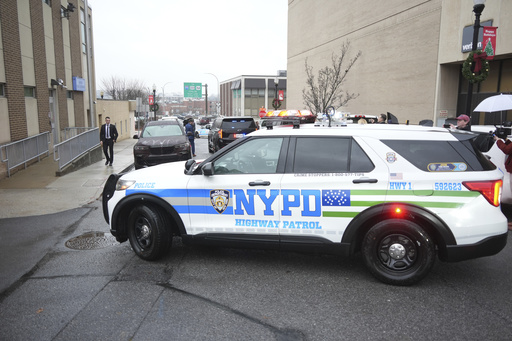Authorities in Manhattan have secured a warrant for the arrest of 26-year-old Luigi Nicholas Mangione, the prime suspect in the murder of UnitedHealthcare CEO Brian Thompson. Mangione was apprehended at a McDonald’s in Altoona, Pennsylvania, while in possession of a firearm, a mask, and writings that reportedly connect him to the deadly ambush.
Currently, Mangione is being held without bail in Pennsylvania, facing charges that include possession of an unlicensed firearm, forgery, and providing false identification to authorities. Following his arrest, Manhattan prosecutors filed five counts against him, including murder, criminal possession of a weapon, and criminal possession of a forged instrument.
In a recent statement, White House Press Secretary Karine Jean-Pierre expressed condemnation for the violent act, referring to it as “horrific.” She emphasized that violence aimed at addressing corporate issues is unacceptable and stated that the administration will continue to denounce all forms of violence, although she refrained from commenting on the ongoing investigation into Thompson’s death, which occurred on December 4.
New York Governor Kathy Hochul also expressed her gratitude towards law enforcement for their swift action leading to Mangione’s arrest and indicated her intention to coordinate with the District Attorney’s Office to ensure that he faces justice in New York. Hochul plans to expedite a governor’s warrant to facilitate Mangione’s extradition to New York for trial, highlighting public safety as her top priority.
Mangione’s background reveals a stark contrast to his current situation as a murder suspect. He is the grandson of a wealthy real estate developer, a valedictorian from an elite prep school, and an alumnus of a prestigious university. Former peers have described him as a “great guy,” and social media images depict him enjoying a vibrant life in places such as Hawaii. Yet, this life took a dramatic turn as investigators endeavor to understand the motivations that led him to commit such a violent act against Thompson, spurring debates regarding corporate greed and ethics within the healthcare industry.
Peter Weeks, the Blair County District Attorney, has committed to collaborating with New York officials to ensure Mangione’s return for trial, emphasizing that the charges in New York outweigh those he currently faces in Pennsylvania. Weeks indicated that such actions are typical in cases where defendants contest extradition. After a brief court hearing, his defense attorney expressed intent to challenge this extradition, suggesting that Mangione believes he warrants a hearing on the matter.
The Manhattan District Attorney’s office is poised to request a governor’s warrant that would allow for Mangione’s extradition back to New York. New York’s laws dictate that the governor can issue a warrant, specifying the necessary details to validate the request, and subsequently coordinate with Pennsylvania law enforcement for a prompt return of the suspect.
The court proceedings thus far have seen Mangione appear mostly stoic, dressed in an orange jumpsuit, as he listens to legal discussions that include possible bail considerations and extradition issues. He has 14 days to contest the current charges laid against him in Pennsylvania, while prosecutors have one month to finalize the governor’s warrant for extradition.
Court filings revealed that Mangione may have harbored anger towards major healthcare companies, labeling them as “parasitic.” Notes and social media posts suggest a disdain for corporate practices within the healthcare system, culminating in violent thoughts towards the implicated industry. Law enforcement has acquired written materials from Mangione that exhibit obsessive views toward corporate America and his motivations behind targeting the UnitedHealthcare CEO.
As authorities work diligently to piece together this case, the community remains in shock, with discussions surrounding corporate ethics and the impact of such violence resonating widely. Court officials are still attempting to determine whether Mangione has secured legal representation and will ensure that the necessary protocols are followed as he awaits future hearings and the process of extradition.
With his cousin, Maryland lawmaker Nino Mangione, also stepping back from public engagements amid the situation, the entire ordeal underscores the complex narrative drawing attention to mental health, corporate governance in healthcare, and the ripple effects of such tragic incidents.
The investigation that led to Mangione’s capture involved multifaceted efforts, including analysis of surveillance footage and tips from vigilant civilians who recognized him. As the case progresses, the spotlight remains on the motivations behind this shocking act of violence and the broader implications it presents regarding corporate accountability and societal well-being.



